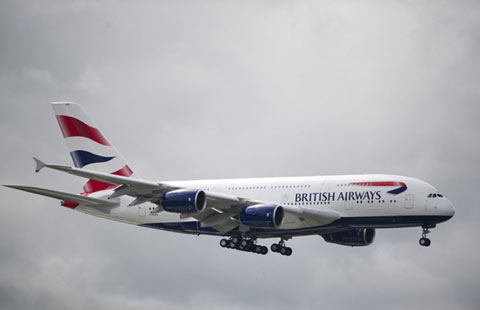UN chief concerns over DPRK's missile launch
Updated: 2014-03-18 11:01
(Xinhua)
|
||||||||
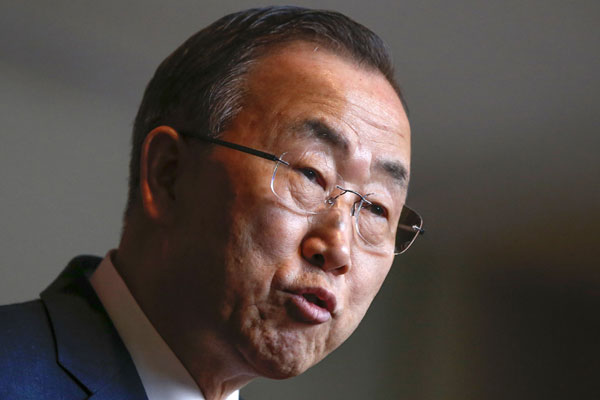 |
|
United Nations Secretary-General Ban Ki-moon talks to the media at UN headquarters in New York March 14, 2014. [Photo/Agencies] |
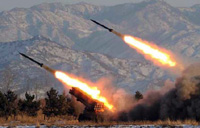 |
"The secretary-general is concerned that the launch of short-range ballistic missiles by the Democratic People's Republic of Korea (DPRK) will lead to increased tension in the region," Ban's spokesman Stephane Dujarric told reporters here Monday night.
The DPRK fired off a total of 25 more short-range missiles toward eastern waters Sunday evening, local media reported from Seoul, citing the South Korean Joint Chiefs of Staff.
The DPRK launched 10 projectiles for 10 minutes from 6:20 p.m. local time, before firing off eight projectiles for five minutes from 8:03 p.m. and seven more projectiles for four minutes from 9: 28 p.m., according to the Joint Chiefs of Staff.
Those projectiles were believed to be short-range missiles, possibly the FROG surface-to-surface missiles, as they have a range of around 70 km, according to South Korean military officials. The DPRK was known to have introduced the FROG missiles from the Soviet Union from the 1960s.
Those missiles were fired from Wonsan areas in the DPRK's southeastern coast toward the eastern open waters.
The launches came 12 days after Pyongyang fired off seven projectiles, possibly artillery shells from the DPRK's new multiple rocket launcher termed by the South Korean military as KN- 09.
"The secretary-general emphasizes the need for the DPRK to refrain from any provocative acts and instead to work with its neighbors to build a political atmosphere conducive for the resumption of dialogue," the UN spokesman said.
On Jan. 29, the DPRK's ambassador to China, Chi Jae Ryong, said in Beijng, capital of China, that the DPRK agrees on the resumption of six-party talks, calling on the United States to fulfil its related obligations.
On the issue of the stalled six-party talks, involving the DPRK, the Republic of Korea, the United States, China, Japan and Russia, Chi said the DPRK has already "taken a seat on the boat of the talks," urging other concerned parties to come on board.
The six-party talks, first held in Beijing in August 2003, repeated a pattern of agreement and its annulment. In 2005, the six parties agreed on a historic Sept. 19 Joint Statement, in which the DPRK pledged to abandon all its nuclear weapons and existing nuclear programs in exchange for energy aid and security guarantees.
Chi said the reason why the Sept. 19 Joint Statement was not implemented is that the United States has evaded its promises and obligation.
- ROK sees DPRK's missile launch as armed protest
- DPRK launches 25 more short-range missiles
- DPRK fires 18 short-range missiles into sea
- DPRK claims missile launches as 'normal training'
- DPRK launches two short-range missiles
- ROK sees DPRK's missile launch as provocative
- DPRK launches four short-range missiles

 Jewish holiday of Purim celebrated in US
Jewish holiday of Purim celebrated in US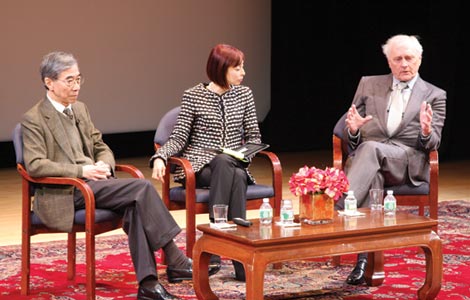
 Nurturing the art scholars of tomorrow
Nurturing the art scholars of tomorrow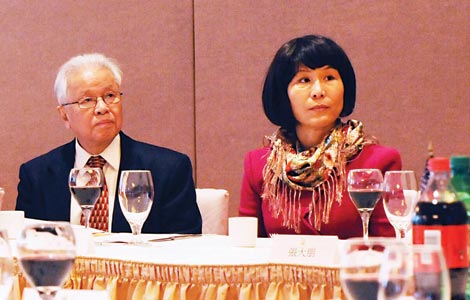
 Chinese Americans will be awarded Ellis Island medals
Chinese Americans will be awarded Ellis Island medals
 Crimeans start celebrating pending referendum outcome
Crimeans start celebrating pending referendum outcome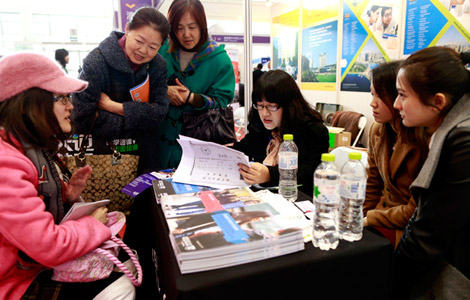
 European universities growing in popularity among students
European universities growing in popularity among students
 Muslims in Malaysia pray for missing plane
Muslims in Malaysia pray for missing plane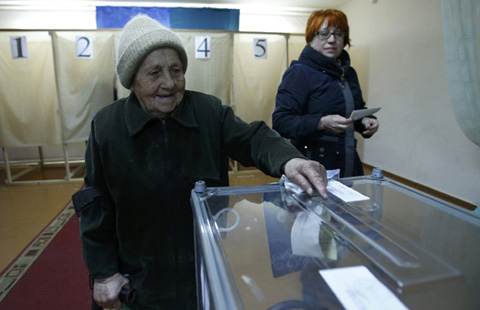
 Ukraine's Crimea kicks off referendum
Ukraine's Crimea kicks off referendum
 Travel-tourism forum advises US to 'loosen' visa requirements
Travel-tourism forum advises US to 'loosen' visa requirements
Most Viewed
Editor's Picks

|

|

|

|

|

|
Today's Top News
Obama imposes sanctions on Russians over Cremea
Michelle to push education in China
Energy startups on same wavelength
Missing jet pilots' motive probed
Alibaba's IPO will be in NYC
WeChat to take on WhatsApp
China tourism boosted at NBA game
Alibaba opts for IPO in US
US Weekly

|

|


